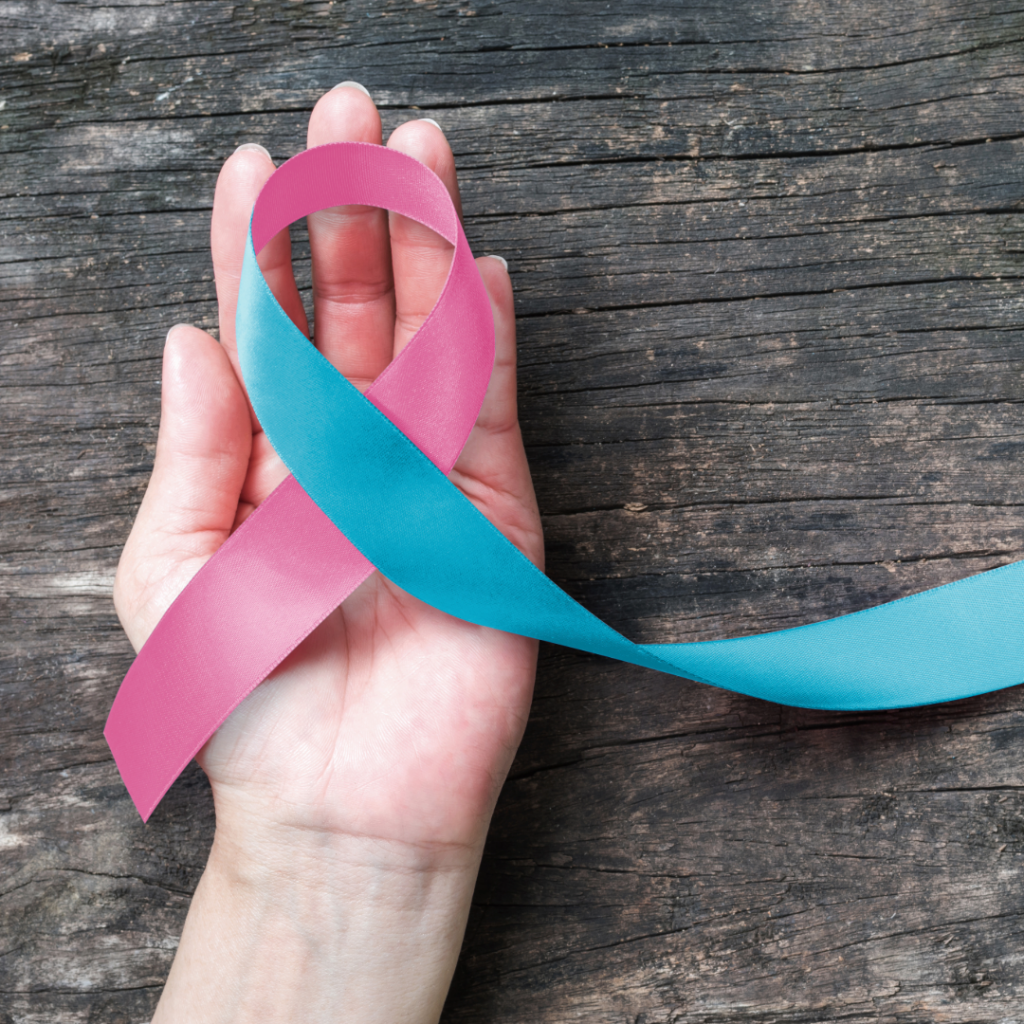Baby loss information
Losing a baby at any stage of pregnancy, such as through miscarriage, is a hard experience to go through — for anyone affected by it. Many men will feel a sense of loss, whether they were expectant dads, grandads, uncles or invested in the pregnancy in some other way.
But the sense of being ‘invisible’ or ‘forgotten’ is a commonly reported theme amongst expectant dads. This often leads them to question their identity after experiencing loss.
It is a normal and valid reaction for you to experience grief and it can manifest in ways you might not expect. You could feel disconnected, angry, or put pressure on yourself to be the strong one. You might feel unsure what you’re supposed to do for the best. Here, you’ll find answers to some of the key questions that can come up after baby loss.
Questions and answers
We’ve split our baby loss information for men into three separate sections — your loss, your partner and you. The information has been provided as questions and answers, allowing you to navigate easily to specific sections.
If there’s anything missing that we can add please let us know. In the meantime, if you can’t find what you’re looking for here, we can recommend the resources provided by the Miscarriage Association and Tommy’s.
Baby loss in pregnancy
Is this kind of loss a major issue?
Baby loss is very common, but it’s not commonly talked about. For example, there are an estimated 250,000 miscarriages each year. To provide some context, that means for every three new cases of cancer there are two miscarriages.
You probably hear a lot more about cancer, and the impact it has on people, than you hear about baby loss. That’s because talking about baby loss is still surrounded by discomfort, and often silence, just like cancer was 50 years ago.
Like cancer, baby loss has major impacts on individuals, families and the economy.
The short-term economic costs of miscarriage to the UK are estimated to be £471 million annually. Researchers estimate that these costs rise to over £1 billion per year when also including the long-term health impacts.
This is similar to prostate cancer, which costs the UK economy about £800 million annually.
What do the different terms mean?
Miscarriage is when a woman loses a baby before 24 weeks of pregnancy. Miscarriage itself can be categorised as ‘early’ or ‘late’. An early miscarriage is one that happened before 12 weeks of pregnancy. Therefore, a late miscarriage is when the miscarriage happened in a pregnancy that was over 12 weeks’ gestation but before 24 weeks’ gestation. From 24 weeks onwards, baby loss during pregnancy or labour is referred to as stillbirth.
At Plan of Action, we refer to all these types of loss as baby loss. We appreciate you might prefer a different term when describing your own experience.
You may have also encountered a lot of other medical language, such as ‘incomplete miscarriage’ or ‘expectant management’. We haven’t attempted to provide an extensive list of medical terms here, because we aren’t medical professionals. You will be able to access definitions for terms, and find further information, on the websites of the NHS or other charities like the Miscarriage Association and Tommy’s.
Why does baby loss happen?
Baby loss in pregnancy can happen for a number of reasons. The most common reason is miscarriage, which is when a woman loses a baby before 24 weeks of pregnancy.
There is still a lot about baby loss that isn’t known. However, there are some known reasons why it happens and there are also some known risk factors that may make it more likely.
For example, more than half of miscarriages before 12 weeks of pregnancy are caused by problems during the early stages of the baby’s development. Unfortunately, the baby can’t survive when it doesn’t develop normally from the start. This is nobody’s fault, but it doesn’t necessarily mean the experience is any easier to go through.
Other known causes have been identified as the result of research focussed on pregnancy and the pregnant woman. Causes include blood-clotting problems and hormonal or anatomical issues. Further information can be found on the NHS website.
Risk factors are things that have been linked to baby loss, but that don’t necessarily cause baby loss. Examples include alcohol consumption and parental age. However, an increased risk of miscarriage is not linked to things like having sex while pregnant or air travel.
Knowledge about specific risk factors linked to men is still lacking. However, having a generally healthy lifestyle is known to improve male fertility. Avoiding alcohol, exercising regularly and maintaining a healthy weight can all be beneficial. For most people, taking action to make improvements in these areas are within their control. Working on these foundations can also be helpful when experiencing grief.


Your partner after loss
How will this affect my partner?
Your partner will likely be experiencing physical, psychological and emotional effects following baby loss. How this looks exactly can vary from person to person and a lot can depend on the context surrounding the loss.
Her physical recovery could take weeks, but emotional and psychological recovery can take longer. The way in which your partner has been affected by the loss, and the progress of her recovery, can all impact how ready she feels to have sex or try for a baby again. Most people go on to have healthy pregnancies after loss, but if you and your partner have experienced multiple losses there should be extra help available.
Why is my partner blaming herself?
Feeling a sense of guilt, or feeling at fault, is a common reaction after baby loss, but in the vast majority of cases it happens for reasons outside of anyone’s control.
Grief after baby loss can give rise to strong emotions that aren’t easily addressed by facts and figures. You can reassure her that it wasn’t her fault and that she’s not alone. Or you can ask her to explain her feelings and listen without trying to provide ‘solutions’.
It’s important to know that your partner might blame themselves no matter what you do or say, and that having patience and respect for her experience can be the best action you can take.
Why are we grieving differently?
It’s ok to grieve differently from your partner. Everyone grieves differently, but after baby loss you might notice that this causes tension or stress in your relationship leading you to ask this question. You might find it difficult to have a conversation about what your partner is going through for fear of causing additional upset.
Studies have shown there are benefits to recognising each other’s grieving styles and talking about them. When you start a conversation, you should be prepared that you and your partner might not be in the same place right away. And it’s also ok if you’re struggling to work out what’s going on for you and how to explain it.
It’s important to know that this experience of grieving differently is common after baby loss. Other people have been through it, and you’ll get through it too.
Baby loss and you
How should I feel?
We appreciate this might feel like an unsatisfactory answer, but there is no right or wrong way to feel after experiencing baby loss. If you’ve experienced other bereavements, then you might be aware of having different experiences after different kinds of loss.
It’s important to know that research has shown men’s experience of baby loss is particularly affected by deeply entrenched social norms and gender stereotypes. These are essentially expectations around how men should think and act. This can mean that making sense of your experience is more complicated. You might feel intense sadness, or you might be wondering why you don’t feel anything at all.
However you’re feeling now, there are further resources that can help you take action to address your needs and navigate your loss.
Am I allowed to grieve?
Yes. Baby loss at any stage of pregnancy is a loss for both parents and grief is a normal reaction – just as it is after other kinds of bereavement.
Studies have consistently demonstrated that many men experience grief after baby loss. Though, you might find yourself questioning the validity of your own feelings or compare yourself to people experiencing different types of loss.
It’s a natural reaction to have these feelings, given the additional complexity that goes with grief after baby loss. It’s important to know that how you feel and grieve will be shaped by how you felt about the pregnancy, felt about having a baby, and felt about becoming a dad.
What does grief after baby loss look like?
Grief hits people in different ways. It can come with a mix of emotions, and no two people will go through it the same.
You might feel angry at the situation, questioning why your loss happened, or become angry at yourself for feeling sad. One day you might feel like isolating yourself and another day you might feel like being surrounded by people. You might decide to grieve in private, which some men will prefer, or you might want to talk to someone about your loss, which some men will also prefer.
If you’re unsure what could help you grieve, or help manage how you feel, then you can check here for some ideas.
What is delayed grief?
Many men experience delayed grief, which might mean you might currently feel disconnected from your emotions.
You might feel like your primary duty is to look after your partner. You might have to go to work or be the one taking care of things at home. It’s common for men to feel like they need to be “strong”, particularly if your partner is in pain and upset. It’s a natural and admirable instinct.
However, one effect is that your own reaction gets pushed into the background and only surfaces later. That’s called delayed grief
It’s important to know that you are allowed to grieve, and you’re allowed to grieve in a way that feels right for you.
Is there a roadmap to grief that will help me understand what’s happening?
Although not exactly a roadmap, you might have heard of the five stages of grief.
These ‘stages’ encompass different reactions. You might feel shocked and numb, angry, helpless, sad, or experience feelings of guilt. Your feelings might change day-to-day, and they will likely evolve over time.
While there is no set timeline or process to follow, there are actions you can take that you might find helpful in managing and processing your grief.
Why am I finding our loss hard to explain to other people?
Baby loss, and particularly early miscarriage, can often be invisible to the outside world and lack the rituals that go with other losses. Feeling like you’re not “allowed” to grieve can also make it more difficult to communicate your loss. Additionally, many men feel uncertain about their identity after this type of loss.
This is known as ‘disenfranchised grief’. This isn’t unique to men’s experiences of baby loss before 24 weeks of pregnancy. In fact, your partner might also experience similar feelings. However, other issues like social stereotypes about masculinity (for example, dealing with hardship alone) can impact men in particular ways.
All of this might result in you feeling like it’s difficult to explain your loss to others. We are developing some resources for talking about your loss, be sure to regularly check the Take Action part of our site for updates. Or sign up to our newsletter to get notifications straight to your inbox.
Is it ok wanting someone to ask how I’m doing too?
After baby loss, you might find that most people you know only ask about how your partner is doing. Many men experience this, and it can result in feeling like you’re left out or overlooked. This is another contributing factor towards ‘disenfranchised grief’, which we touched upon above.
It is normal to want people to ask how you’re doing because your experience matters as well. But, more often, you might find that people say well-meaning but unhelpful things like “you can always try again” or “at least it was at an early stage”.
When people get this wrong, it can be because of stereotypes or unconscious biases that affect how their behaviour. Part of our work at Plan of Action is about trying to change stereotypes and guide people towards better conversations after loss.
Is it normal to feel a strain on the relationship with my partner?
It’s likely that you and your partner will have different reactions, including experiences of grief, after baby loss. When this happens, it can cause your relationship to feel strained. You might feel like you’re carrying a different practical load to your partner. You might feel like there is less help available for you.
Baby loss can be an intensely stressful and difficult experience. Some couples find that it drives them apart and this can lead to relationship break down. Other couples find that the experience strengthens their bond.
If you find yourself worried about your relationship, you might want to find help from other charities such as Relate. We’re continually developing new resources, so keep an eye on our site for updates.
What do other men do to cope with this kind of loss?
There are several studies that provide insights into how men cope with grief after baby loss, with coping mechanisms categorised as either intuitive (emotion-focussed) or instrumental (activity and problem-solving focused). In one study, men were reported as recognising a need to balance activity-focussed coping, or distraction, with emotional expression and activity to help with processing grief.
Some men will talk to a mate they can rely on or attend a peer-support group. Some men will talk to a therapist or charity helpline. Some men will prefer to process their grief alone. Ultimately, how you choose to process your grief, and cope with your loss, will be a very personal decision. But taking proactive steps to develop your own way of coping, whatever that looks like for you, can be beneficial in the long run.
For further resources that can help with visit our Take Action pages.
Take one small action now. Click below to share this page.

